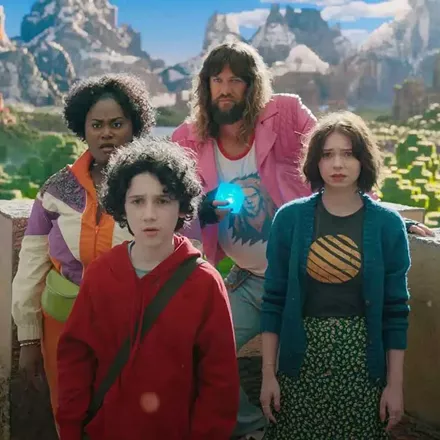
- United Artists
A few months ago, upon reading Miriam Toews novel Women Talking, I responded thusly: "I can see this concept working as a movie ... As a book? Very much a slog through repetitive abstract debate." It was important to keep that idea in mind as I prepared for writer/director Sara Polley's film adaptation, just as it's always important to keep in mind that a movie is not a book, and the success or failure of a story in one medium isn't necessarily an indicator of how it will work in the other. Polley might have been considerably more initially enthusiastic about her source material than I was, but ultimately, that's not as relevant as the extent to which she could look at the text and think, "I get how to make this work on a screen."
Women Talking the movie is orders of magnitude more emotionally affecting that Women Talking the book, in a way that makes one seriously consider whether "Best Adapted Screenplay" should mean "Best Screenplay That Happens to Be Adapted" or "Best Job of Adapting Something Into a Screenplay." Thematically, Polley wrestles the characters' arguments into powerful moral lessons. Aesthetically, she finds visual motifs that break up the possible monotony of her central structure. And collaboratively, she gives these events greater impact through the work of her actors.
The premise—loosely adapted from real-life events—finds the women in an isolated Mennonite community facing a turning point after the realization that men in their community have been serially drugging and raping them all. After several of the accused are arrested, the men collectively travel to the nearby town to arrange bail, giving the women 48 hours to forgive their attackers or face excommunication. Instead, the women meet to decide upon possible courses of action: Should they allow their community to continue unchanged? Should they stay and fight? Or should they leave their community behind?
Most of Women Talking consists of the debates engaged in by members of three elected families—including Ona (Rooney Mara), who has been left pregnant by a rapist; Salome (Clair Foy), whose 4-year-old daughter has also been assaulted; and Mariche (Jessie Buckley), who lives with an abusive husband—while minutes are taken by August (Ben Whishaw), the local schoolteacher, on behalf of the mostly-illiterate women. In literary form, it became difficult to distinguish between the voices of the various speakers, but the central performances here are all tremendous, giving those voices a fresh energy. And it's particularly crucial when the two best performances—by Foy and Buckley—capture a similar rage that has turned in two very different directions.
It's also crucial that Polley doesn't spend the entirety of Women Talking in the hay loft where the women have convened. While she never wallows in the horrors of the crimes being addressed, she provides snippets of insight into the moments of greatest pain, like half-remembered nightmares, so that it's clear what's at stake. She also employs a recurring portrayal of the community's children at play in the fields, boys and girls interacting happily together, giving a heartbreaking face to the exploration of how these behaviors are learned, and at what point the male members of the community may be beyond hope of unlearning their dehumanization of women.
What's ultimately most compelling about Women Talking is that the choices these women face aren't just about the fate of their bodies, but about the fate of their souls. This may be a story set in a conservative religious community, and one built on a rock-solid patriarchy, but it is not remotely a dismissal of belief in God. Instead, it's a recognition that the institutions built by humans in the name of God can fall into error and cruelty, and that sometimes the truest measure of belief is understanding when to discard the dogma one has been taught—or, as one of these women says, that "our faith is stronger than the rules."
There's not as much that Polley can do with the character of August, unfortunately, either in his role as saintly representation of "not all men" (the phrase is literally used) or in his unconvincing star-crossed romance with Ona. His role is the rare case where Women Talking feels constructed to tick off some boxes, rather than to capture real wounded humanity. All credit to Polley and company for how much power they give this narrative by making it about much more than simply women talking.

